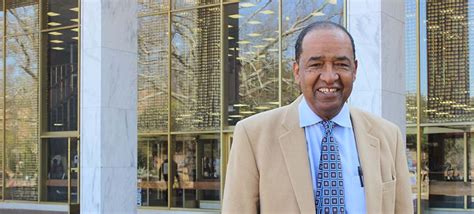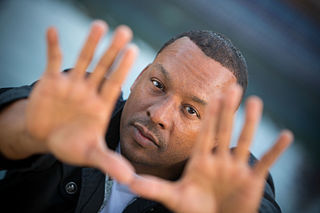A Quote by Cleveland Sellers
We wanted black power to be all things to all people.
Quote Topics
Related Quotes
Being a black filmmaker, one of the things I wanted to do with the movie is make sure I told it from a different perspective. I wanted to take myself out of it as a black male. I wanted to look at this movie through the eyes of Tully, to understand what he was thinking, and feel what he was feeling as much as I could.
It wasn't that people wanted things for free and asked for advertising to fund it - it's that these companies wanted to amass an audience whose "eyeballs" they could sell, and they gave people things for free to do that. Free services and content has been foisted upon us because there wasn't the will power to explore other options.
There are a lot of people who believe that the individual can't make it himself. And that's why people want to join up in various herds - herd formation. So you become part of a herd, a group. Group power of some kind. There's an awful lot of group power people in our country [the USA] - Black power, Chinese power, Indian power, woman power. Everyone is putting in together.
Remember, we're talking [in The Black Power Mixtape] about 1967, the year before [Martin Luther] King's assassination. We're talking about the emergence of black power, which is a discussion King mentioned in his last book, Where Do We Go from Here: Chaos or Community? We're talking about the meaning of black power and the possibility that it alienated our supporters, both white and black.
I wanted to make sure the focus [in The Land] was on human beings themselves and their decisions, but still connected to the urban environment that people associate as being black. I think I was able to make a film without commenting on "black this or black that" and you still feel the presence of it. There's no one character who's saying "we're all black and we're all in this struggle." It's that you just feel it. Some of that is because we get the sense from a lot of independent films that black people struggle all the time.
I've never seen a sincere white man, not when it comes to helping black people. Usually things like this are done by white people to benefit themselves. The white man's primary interest is not to elevate the thinking of black people, or to waken black people, or white people either. The white man is interested in the black man only to the extent that the black man is of use to him. The white man's interest is to make money, to exploit.
The civil rights movement didn't deal with the issue of political disenfranchisement in the Northern cities. It didn't deal with the issues that were happening in places like Detroit, where there was a deep process of deindustrialization going on. So you have this response of angry young people, with a war going on in Vietnam, a poverty program that was insufficient, and police brutality. All these things gave rise to the black power movement. The black power movement was not a separation from the civil rights movement, but a continuation of this whole process of democratization.

































